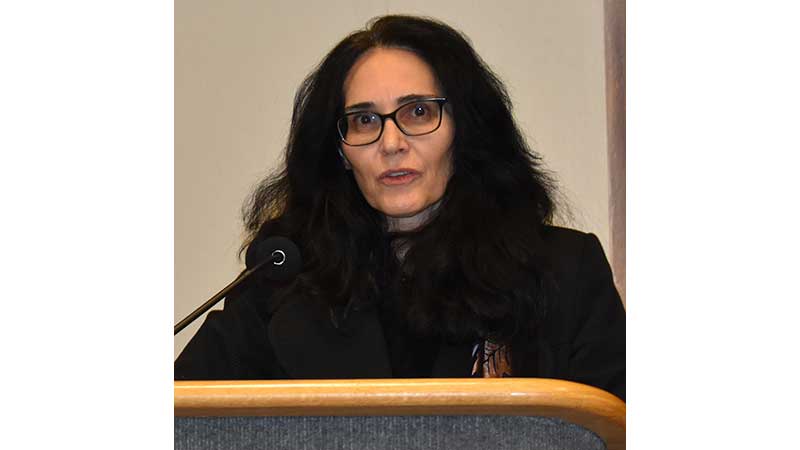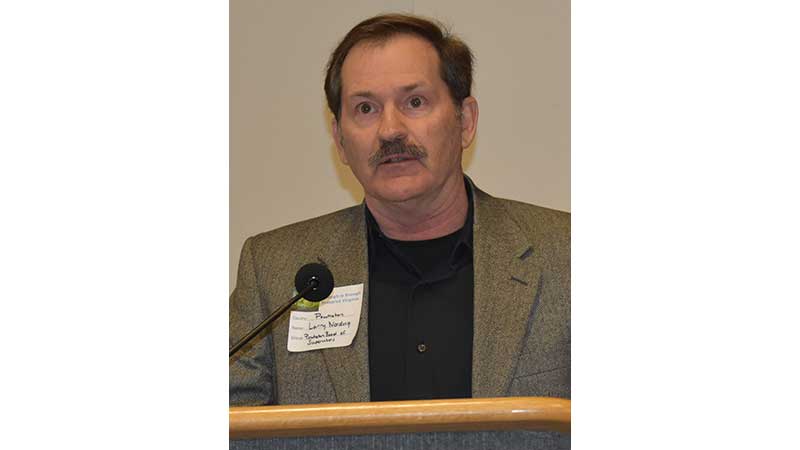Environmental impacts addressed
Published 6:18 pm Thursday, November 29, 2018
Several dozen people, many who shared environmental concerns in their communities and across Virginia, filed into the Village Building Auditorium in Powhatan County on Tuesday to hear speakers and to unite against large-scale industrial projects that have lent to worries about the impact these projects could have on land and water.
Among the topics of concern were the Atlantic Coast Pipeline (ACP) and the Green Ridge landfill in Cumberland County.
The event was organized by Victoria Ronnau, of Powhatan, who has been opposed to the landfill progress on Route 60, where trucks entering and exiting the landfill will primarily travel through Powhatan.
Ronnau said growing concern about the Green Ridge Recycling and Disposal Facility, which was approved by the Cumberland County Board of Supervisors in June, and learning about the Buckingham Compressor Station connected with the ACP, inspired her to find a way to unite organizations who had similar concerns about large-scale projects and their potential impacts on their homes and environment.
“We’re not going to be heard unless to start to unify,” Ronnau said during the meeting. She said the goal of the collective meeting of grassroots organizations Tuesday, called “Enough is Enough,” is to “start being loud enough and clear enough with one message that we’ll keep all of us safe.” The event featured several speakers, live music performances and opportunities for people to speak about the causes that brought them to the meeting.
‘An eye-opener’
The keynote speaker for the event was Rebecca Rubin. Rubin is the founder and CEO of Marstel-Day, a natural resource and environmental consulting firm based in Fredericksburg.
Rubin was one of two members of the Virginia Department of Environmental Quality (DEQ)’s State Air Control Board who was recently removed from the board. This decision from the Governor’s Office created controversy as Rubin and board member Samuel Bleicher were among the board members deliberating the air permit for the Buckingham Compressor Station. The board, which held meetings Nov. 8 and 9, voted to defer action until Dec. 10 in order to have more time to consider information from the application and from the public.
The 53,783-horsepower compressor station would be located off Route 56 in Buckingham, and would be connected with the ACP, proposed to span 600 miles, crossing Buckingham, Cumberland and Prince Edward counties.
Rubin said at the beginning of the address that she did not intend to comment on the air permit. Instead she offered advice and insight to those fighting for environmental protection in the face of widespread pollution, wildfires and concerning reports about climate change.
“Now is the perfect time for you to engage,” Rubin said. “Now is exactly the right moment for you to be part of a transformation, whether that’s within your own household, your company or by joining forces to confront environmental decisions that do not feel right to you. It’s exactly the right moment to realize that everything is at stake, and that big decisions that are swept across our planet are the sum of their parts, billions of small decisions.”
Heidi Dhivya Berthoud with Friends of Buckingham, who attended the event, asked what those concerned about environmental issues can do to go forward.
Berthoud and a few audience members asked or commented to Rubin about the “elephant in the room,” the decision to remove Rubin and Bleicher from the board before the Dec. 10 meeting.
Rubin encouraged Berthoud and others to continue to use their voices and speak, adding that the impact is greater than most realize.
An audience member asked what people can do after they have done all of the right things, such as filing lawsuits, engaging with specific elected officials and attending and speaking at meetings related to projects of concern.
“How do you see us moving forward and feeling like we really are being heard?” the audience member asked. “What we see is corruption or somebody stepping in to rig the game.”
Rubin gave a statement concerning the air permit decision.
“It’s certainly in the jurisdiction of the Commonwealth to replace members of citizen boards,” Rubin said. “It’s also true that my term was done, and that I had been asked to stay on until a replacement was found, and that the same is true with Sam and any other member of any board. However, in my view, this does not relieve the Commonwealth of its broader duty to due process — a duty I feel was not met when Sam Bleicher and I were removed just prior to crucial hearings. I personally do not think due process was served in the Commonwealth by replacing two members of the board essentially during a deliberative process, thereby curtailing the ability of informed individuals on the board to exercise an informed vote.”
“I think to go back to your question, in my mind this isn’t a meeting about what happened on the air board, this is a meeting about how you want to think through issues, environmental issues in Virginia,” Rubin continued. “I do think that was a bit of an eye-opener for a whole lot of people, and judging by the press it’s gotten, it’s not over yet.”
‘A Virginia issue’
Powhatan District Two Supervisor Larry Nordvig spoke about the impact of the Green Ridge landfill, which would be located on a total 1,143.872 acres on Route 60. Of that land, 500-600 is estimated to be used for disposal sites.
Nordvig said with up to 5,000 tons permitted to come to the landfill daily and with trucks having to travel down the route, he contended that Powhatan and future generations would be the hardest hit by the landfill.
“Is that going to damage our roads in Powhatan?” Nordvig asked as audience members responded. “Yes. Is it going to impact traffic safety? Yes. Is this going to increase first responder needs in Powhatan? Yes.”
He contended it could also increase the potential for litter in the county and affect the water and air of residents both close to the site and surrounding counties. Nordvig said he is looking into the potential for a legislation that would define when an issue is significant enough to have a regional impact and what the responsibilities of local governments should be in those situations.
“This is not just a Cumberland County issue,” Nordvig said. “This is a regional issue. A Virginia issue.”
Cumberland resident Ronald Tavernier expressed concern that Green Ridge would be the first landfill operated by County Waste of Virginia and spoke about the close proximity to the James River from the landfill site among other concerns about the potential for water contamination.
He encouraged people to petition and to continue being involved.







